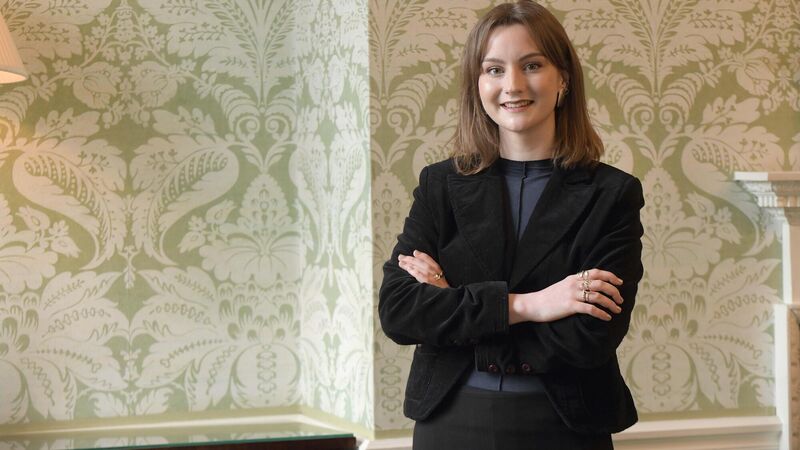Diary of a Gen Z Student: The differences between Irish and Portugese men when it comes to flirting

Jane Cowan in the Shelbourne Hotel, Dublin Photograph Moya Nolan
‘Stay away from those Portuguese boys’, was the sage advice my father gave to me as he kindly dropped me to Terminal 1 of Dublin airport last week. Classic fatherly advice.
And classic daughterly reaction: I laughed at him. I was going to Lisbon with one of the girls for a few days of sun and Aperol Spritzes. And spending evenings bar hopping in a city means that it’s pretty difficult to avoid interacting with the opposite sex.







